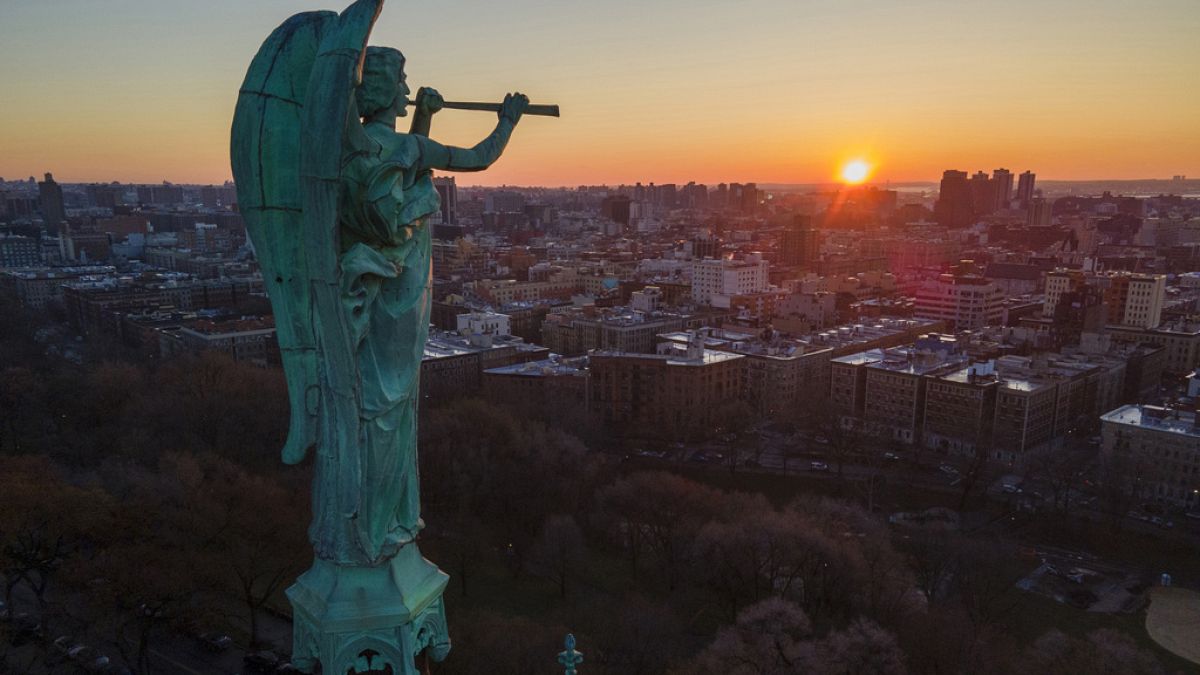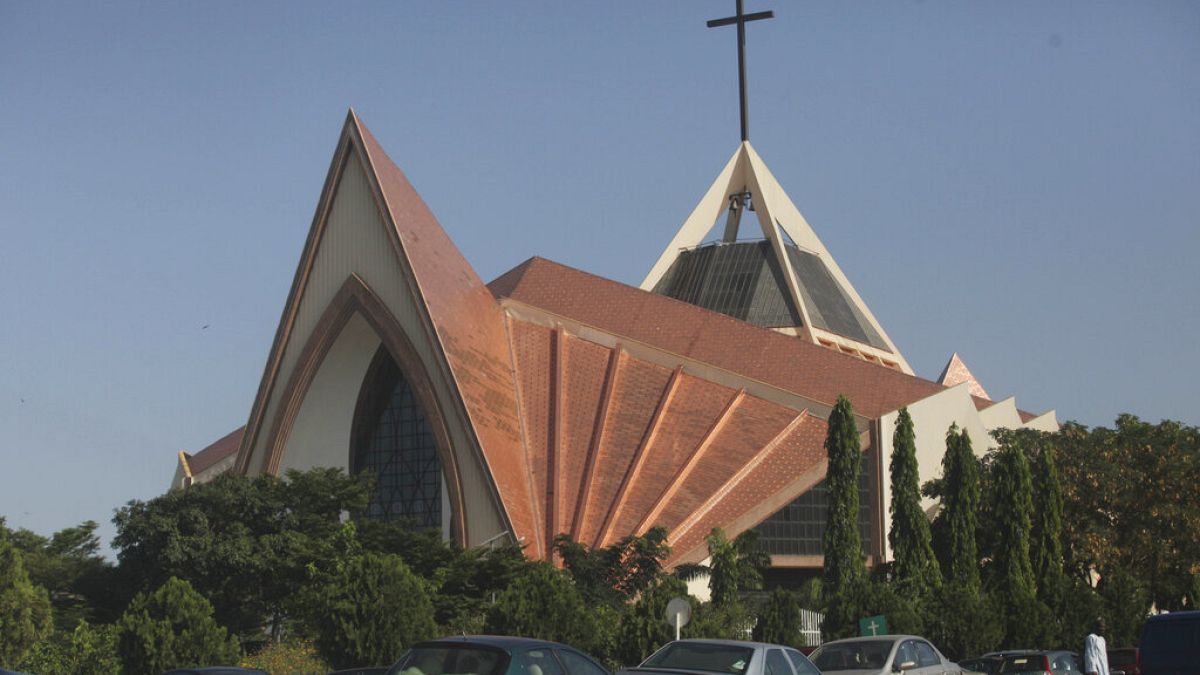Israel renews orders for Palestinians to leave northern Gaza

The order comes as the UN warns that no food aid has entered northern Gaza since 1 October.
The Israeli military on Saturday renewed its orders for Palestinians in the northern Gaza Strip to leave their homes and shelters as troops continue their weeklong offensive against militants.
Avichay Adraee, a spokesman for the Israeli military, told people living in the targeted area that they should head south to Muwasi, a packed area in southern Gaza designed by the military as a humanitarian zone.
The military also ordered the three main hospitals in northern Gaza to evacuate patients and medical staff.
Most of the fighting in the past week was centred in and around Jabaliya, the largest refugee camp in the Gaza Strip. The area was pounded by Israeli war jets and artillery. Residents there said they have been trapped inside their homes and shelters.
No food aid for Gaza since 1 October
The United Nations food agency said on Saturday that no food aid had entered northern Gaza since 1 October.
The World Food Program (WFP) said that the primary border crossing into the war-ravaged area had been closed for about two weeks. The agency also warned that Israel’s ongoing ground operation will have a disastrous impact on food security for thousands of Palestinian families there.
“The north is basically cut off and we’re not able to operate there,” said Antoine Renard, the WFP country director of Palestinian territories.
Concerns of a hunger crisis have risen in Gaza roughly a month after a UN independent investigator on the right to food accused Israel of carrying out a “starvation campaign” against Palestinians.
Israel has denied such allegations and insisted that it has allowed food and other aid into Gaza in significant quantities.
“Israel has not halted the entry or coordination of humanitarian aid entering from its territory into the northern Gaza Strip. As evidence, humanitarian aid coordinated by COGAT and international organisations will continue to enter the northern Gaza Strip in the coming day as well,” COGAT, the Israeli military body overseeing aid distribution, said in a statement on Wednesday.
The WFP said its food distribution points, as well as kitchens and bakeries in northern Gaza, have been forced to shut down due to airstrikes, military ground operations and evacuation orders.
It said that the only functioning bakery in North Gaza, supported by WFP, caught fire after being hit by an explosive munition.
The WFP said its last remaining food supplies in the north — including canned food, wheat flour, high-energy biscuits, and nutrition supplements — have been distributed to shelters, health facilities and kitchens in Gaza City and three shelters in the northern areas.
It is unclear how long these limited food supplies will last, warning that the consequences for fleeing families will be dire if the escalation continues.
Israel’s offensive in Gaza has killed over 42,000 Palestinians, according to local health authorities, who do not say how many were fighters but say women and children make up more than half of the fatalities.
The war has destroyed large areas of Gaza and displaced about 90% of its population of 2.3 million people, often multiple times.
Death toll rises in Lebanon
The speaker of Iran’s parliament on Saturday toured the scene of an Israeli airstrike in Beirut that killed and wounded dozens. He vowed that Tehran would keep supporting Lebanese and Palestinians fighting against Israel.
Mohammad Bagher Qalibaf visited the area struck after holding talks with caretaker Prime Minister Najib Mikati, who said that Lebanon’s priority now was to work toward a ceasefire.
His office said that Lebanon’s government still abides by a 2006 UN Security Council Resolution approved at the end of a 34-day war between Israel and Hezbollah, and was prepared to boost Lebanese army presence along the country’s border with Israel.
It was the second visit by an Iranian official to Beirut in recent days after the country’s foreign minister visited Lebanon earlier this month.
Iran is a main backer of Lebanon’s Hezbollah group, which suffered major setbacks in recent weeks as well as the killing of its leader Hassan Nasrallah.
Lebanese authorities said on Friday that 60 people were killed and 168 wounded in the past 24 hours, raising the total death toll over the past year of conflict between Israel and the militant group to 2,229 dead and 10,380 wounded.
Israel has been escalating its campaign against Hezbollah with waves of heavy airstrikes across Lebanon and a ground invasion at the border. It comes after a year of exchanges of fire.
Hezbollah started attacking Israeli army posts in October last year in solidarity with the militant Hamas group in Gaza. Since 23 September, Israel has intensified its airstrikes and forced the displacement of hundreds of thousands of Lebanese.
Last week, Israel began a ground invasion of Lebanon, leading to clashes along the border with Hezbollah fighters.
Islamic State camps in Syria hit by US airstrikes
The US military said it conducted a series of airstrikes against multiple camps in Syria belonging to the so-called Islamic State (ISIS) group.
US Central Command said the strikes on Friday will “disrupt the ability of ISIS to plan, organise and conduct attacks against the United States, its allies and partners, and civilians throughout the region and beyond.”
It said battle damage assessments were underway and did not include civilian casualties.
There are some 900 US forces in Syria, along with an undisclosed number of contractors, mostly trying to prevent any comeback by the extremist IS group, which swept through Iraq and Syria in 2014, taking control of large swaths of territory.
World News || Latest News || U.S. News
Source link



